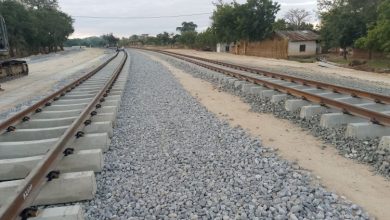Commercial farmers tackle food security
The Commercial Farmers Cooperative Society (Cofaco) has urged government to adopt a production-driven food security strategy that unites large-scale estate farmers, national agencies and private investors to deal with the perennial problem.
Cofaco’s position comes barely a week after the Malawi Vulnerability Assessment Committee (Mvac) stated that about four million people are at risk of hunger in the 2025/26 consumption period, requiring over K387 billion for relief.

Already, President Peter Mutharika has asked his Zambian counterpart Hakainde Hichilema for 200 00 metric tonnes (MT) of maize to help Malawi fill a food deficit, especially during the lean period.
In an analysis made available to The Nation, Cofaco president Hellen Chabunya said the crisis offers a “critical moment for reset”, one that prioritises scale, irrigation and institutional coordination over repeated short-term relief.
“We cannot continue treating hunger as an emergency every year. Malawi’s farmers can feed the nation, but they must be treated as partners in policy, not as afterthoughts,” she said.
In the short term, Chabunya urged government through the National Food Reserve Agency (NFRA) to purchase maize and legumes from locally-verified large and medium-scale farmers, ensuring both availability and fair pricing, before thinking of imports.
She further suggested establishment of a temporary Agricultural Financing and Input Fund to provide credit lines to estate and medium-scale farmers for fuel, fertiliser, seed and irrigation rehabilitation as well as immediate investment in solar-powered irrigation systems.
Said Chabunya: “In the medium term, the Green Built Authority (GBA) should refocus its resources toward large irrigation schemes and estate clusters capable of producing grain surpluses and integrating surrounding smallholders through contract farming.
“The government should formalize forward contracting systems, under which the NFRA and other public agencies commit to purchasing set volumes of staple crops at predetermined prices. This provides market assurance to farmers and stabilizes national reserves.”
On mega farms, she proposed that the project should focus on estate-scale mechanised production zones as engines of food and export growth, where large farms become anchor producers, supported by irrigation and mechanisation infrastructure.
In an earlier interview, Centre for Social Concern economic governance officer Agnes Nyirongo said the food-insecure population is largely due to poor administration of the Affordable Inputs Programme (AIP) coupled with adverse weather conditions this year.
She called on authorities to intervene on the situation while planning to avoid a similar situation next year.
Said Nyirongo: “Over the years, the country has relied on AIP, but the benefits are not quite impressive. That alone has to be looked into.”





